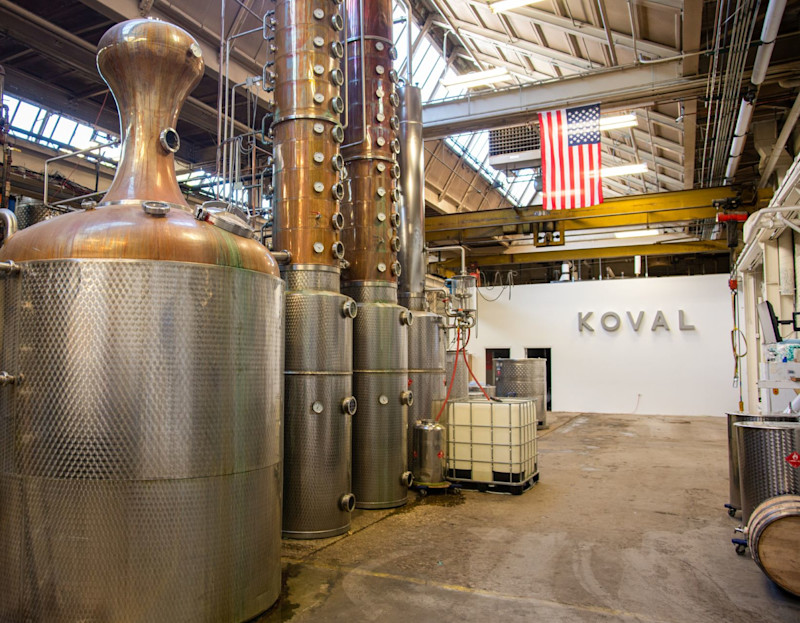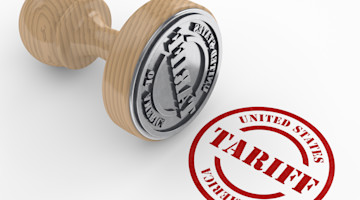KOVAL smartly deploys advanced monitoring technology in the service of creating a reliable, consistent (and delicious) product.
In an old, renovated duct factory in Ravenswood (a mile northwest of Wrigley Field) in Chicago, a small distillery is putting high-tech monitoring technology to good use in the service of something decidedly unglamorous: consistency.
No, not consistency in terms of texture or viscosity or even "mouth feel." In this case we mean consistency as in reliability; as in making the same product over and over again without any changes in quality, appearance, or taste. It's something we take for granted every day, assuming that the product we're buying will behave the same way it did when we bought it last month. But it isn't something that happens on its own —manufacturers take every step they can to ensure quality, reliability, and consistency, and they use a lot of high-tech equipment to do it.
For a process with as many variables as distilling, this can present a challenge to smaller, less tech-oriented craft companies. But that's not . For husband-and-wife founders and operators Dr. Robert Birnecker and Dr. Sonat Birnecker Hart (first name pronounced like a Shakespearean "sonnet"), distilling with advanced monitoring technology is a crucial part of their process.
"We're not working on the same scale as a large distillery, but that doesn't mean we want to have any less tech to make sure our process is fully monitored the whole way through," Sonat says.
For KOVAL, what this looks like is a classic example of Industry 4.0 wherein every piece of equipment has a monitor on it, and is communicating with a central system. "We're able to keep tabs on all of the elements related to the distilling process. From what's going on inside the equipment to what's going on outside — the ambient temperature, the flow rate inside, the temperatures inside the mash tanks," Sonat says. "All of these things are really important for maintaining consistency across the product."
Smaller distilleries that don't use this technology, or that don't have sensors on their equipment, will typically experience more aberrations and variation in their final products. Moreover, they might not know if something goes wrong until the whiskey hits their lips.
KOVAL doesn't have this problem. "Every piece of equipment is fully monitored so if something is off one point on temperature we get an alert sent to us," Sonat says. "We know in real time and can make changes accordingly." This tech-forward monitoring approach means a more reliable manufacturing process and a more consistent product, as well as a lot less waste since errors and issues can be addressed right away and not before they've already pickled a whole batch.
It's a smart way to approach distilling, a fact that hasn't gone unnoticed in the global craft distilling community. "We train not just the people who come and work for us, but also people who want to start their own distilleries," Sonat says, noting that their Chicago facility also includes a classroom where the company shares its techniques with others hoping to get into the business of making their own liquor. "We've trained about 3,500 people in how to start distilleries and they come from all over the world. We've also set up well over 200 distilleries around the world — including the largest distillery in Uganda, and the first distillery in Jerusalem."
"Education and training is very central to what we do," she adds.
There are myriad other ways that KOVAL's distilling process and final products are distinct from other operations —they use all-organic locally grown grains, rely on only the prized "heart cut" of the distillate to make their products and make rye, oat, millet, and other grain whiskeys with mash bills made from 100% of the named grain (most companies use a blend of grains at different ratios; rye whiskey by law only has to have a mash bill that's 51% rye).
But none of it would be possible without the company's novel deployment of advanced monitoring technology. All of the data KOVAL collects goes to good use ensuring that their products taste the same today as they will next month, next year and beyond.









